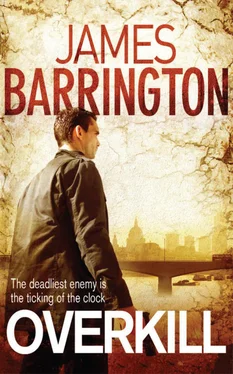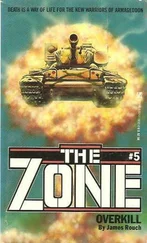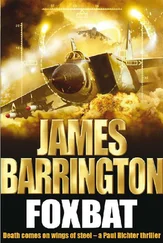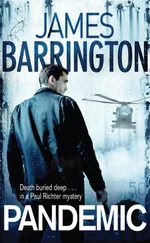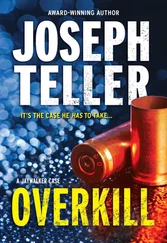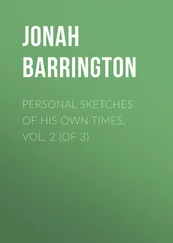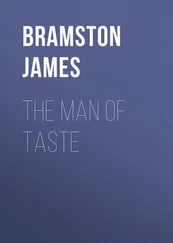‘Certainly,’ Richter replied. ‘Curiosity.’ Kemp looked at him expectantly, so Richter elaborated. ‘I’m curious to know why the Americans risked a major diplomatic row, not to mention a very expensive and highly classified aircraft and crew which was, incidentally, supposed to have been withdrawn from active service some years ago, to get detailed photographs of seven hundred miles of Russian tundra, and why they’re so damn coy about whatever it is they think is up there.’
Kemp nodded. ‘Yes, that puzzled us too. As far as we can tell from the initial analysis, there’s no evidence of any new buildings or other structures that might be of any military significance. In fact, it’s an extremely boring bit of Mother Russia all round.’
‘I’m running a little late,’ Richter said, glancing at his watch and then rising to his feet, ‘so could I see the films now?’
‘Of course. Come with me.’
Heathrow Airport, London
John Westwood walked out into the Arrivals Hall at Heathrow Airport and looked around. After a few moments, a large black man wearing a dark suit detached himself from the wall and walked across to him. ‘John Westwood?’
Westwood nodded. ‘Yes. And you are?’
‘Richard Barron, sir. From the Company. We have a car outside.’ Without apparent effort Barron plucked Westwood’s heavy suitcase from the trolley and led the way towards the doors. Westwood followed, carrying his briefcase. Outside, two black American Fords carrying ‘CD’ plates waited at the kerb, engines idling and drivers standing beside them. Barron put the suitcase in the boot of the first car, then opened the rear door for Westwood.
‘Hullo, John,’ said the man in the back seat. Westwood sat down and looked at him blankly. The thick black hair, deeply lined face, dark blue – almost black – eyes and over-large nose were familiar, but it took Westwood a few seconds to place him. Then he smiled and extended his hand. ‘Sorry, Roger,’ he said. ‘It must be the jet lag, or just a bad memory for faces. It must be – what – seven years?’
Roger Abrahams shook his head. ‘Eight,’ he replied. ‘Bonn. You were Chief of Station, and I was your deputy for the last six months or so before you went back across the pond and moved up in the world.’ Abrahams looked towards the front seat of the car. ‘OK, Richard,’ he said. ‘Let’s move.’
Barron nodded to the driver, and the car eased away from the kerb and into the mid-morning traffic. Behind, the second car moved out and kept pace about fifty metres back.
‘I saw the name of the London COS back at Langley,’ Westwood said, ‘but I didn’t realize it was you. You’ve done well.’
‘Thanks,’ Abrahams muttered. ‘You gave me a good write-up in Germany, and that helped. Now, what’s the problem? What brings the Company Head of Foreign Intelligence all the way to London?’
Westwood took a moment before replying. ‘No offence, Roger,’ he said. ‘I’d rather wait until we’re in a secure location. For the moment, let’s just say it’s a liaison visit.’
Abrahams nodded. ‘Understood. I’ve reserved you a room at the Embassy in Grosvenor Square, but I can book you into one of the local hotels if you’d prefer.’
‘No, the Embassy’s fine.’ Westwood paused for a moment. ‘Time’s short on this one,’ he said, ‘so I’d like to get started as soon as possible. We’ll need to use a secure briefing room, and I want to talk to you alone first.’
Abrahams nodded. ‘No problem. Do you want to sleep or eat first?’
‘No, I slept on the plane and I’m not hungry. Just a pot of coffee will do.’
‘Right.’
The two cars sped on, mingling with the London-bound traffic on the M4 motorway.
Joint Air Reconnaissance Intelligence Centre, RAF Brampton, Huntingdon, Cambridgeshire
Richter followed Kemp down a short passage which ended in a closed door bearing the legends ‘Classified area. No unauthorized personnel permitted beyond this point.’ Kemp stopped at a small window in the right-hand wall and addressed it. ‘Squadron Leader Kemp. I’d like a visitor’s pass for Commander Richter.’ He beckoned Richter to the window. ‘Sign here, please, and put your name and rank in these columns.’
Richter complied, after which he received a bright red card, plastic covered, bearing a large black letter ‘V’ and a rather smaller ‘4’ in exchange for his Navy ID card. The door was secured by an electric lock actuated from the other side of the window; it clicked open and Richter followed Kemp through.
In the windowless Viewing Room, Kemp picked up a telephone and dialled a number. ‘Squadron Leader Kemp. Commander Richter is with me in the Viewing Room, and we’d like to run the Blackbird films as soon as possible. I’d also like the principal PI officers who’ve worked on the films to attend. Oh, and rustle up some coffee while you’re at it.’ He replaced the receiver. ‘It’ll take about ten minutes or so to set up the projectors with the films, so I’ll start off by giving you a general briefing on what you’ll be seeing.’
‘Thanks,’ Richter replied. ‘One question before you start: I guessed from your office door label that you’re the Section Security Officer – SSyO – but you seem quite familiar with these films and how the RAF got hold of them. Are you a PI as well?’
Kemp walked to a lectern at the end of the room and leaned on it. ‘Yes, I am,’ he said. ‘Virtually everyone here is Photographic Interpretation trained; Section Security Officer is very much a secondary duty. I spend most of my time peering through a shifty-scope or staring at a computer monitor.’
‘What the hell’s a shifty-scope?’ Richter asked.
‘Sorry, RAF slang,’ Kemp said, grinning. ‘It’s a series of stacking magnifying lenses that you place on a photograph or negative on an illuminated table. To increase the magnification you add another lens, and then another and so on. It can be used in both PI and photogrammetrical analysis – that’s the use of photographs in survey work. Actually, these days we usually employ computers to analyse images. You’ll be pleased to hear that you won’t have to use either. We’ve had everything transferred onto a thirty-five millimetre fine-grain filmstrip which we can run through a high-resolution projector, and that’s what you’ll be seeing.’
He opened his notebook while Richter looked around. The room was arranged like a grown-up corridor, long and narrow, about forty feet by fifteen. At the far end, beyond the lectern, was a projection screen, with a series of long narrow ceiling-mounted boxes directly in front of it, which presumably held maps or other visual displays.
Kemp took a short stick with a hook on its end and pulled one down, confirming Richter’s deduction when a map of north-western Russia unfurled on a kind of roller blind. Richter was sitting in the front row of six rows of seats, with five seats in each. The room’s illumination was supplied by fluorescent tube lighting on the ceiling. The wall behind the seats had three small square glass windows through which films could be projected.
‘Before I begin,’ Kemp asked, ‘please state your security clearance.’
‘CTS – Cosmic Top Secret.’
Kemp nodded. ‘Fine. The majority of this briefing is classified Secret, but there are certain aspects of it that are graded Top Secret, and the caveat UK Eyes Only applies to the whole. Would you please confirm that you understand that?’
‘Understood,’ Richter replied.
‘First, the basic route. As I presume you’ve already been briefed on this I won’t go into too much detail, just remind you of the salient points.’ Kemp took a collapsible pointing stick from the lectern, extended it and pointed to the top centre of the map. ‘The Blackbird crossed the Russian border about here at Amderma and, from the route details supplied by the USAFE, the filming started here at Vorkuta and the cameras operated until the aircraft reached this point here at Shenkursk, almost due south of Arkhangel’sk.’
Читать дальше
